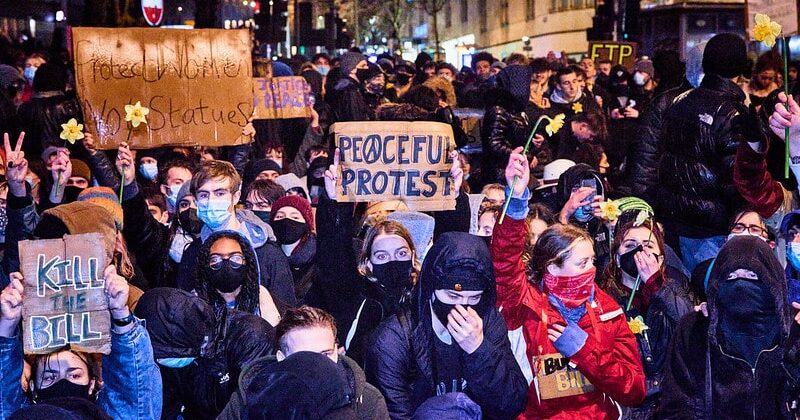

The murders of Daunte Wright and Adam Toledo by police officers in the USA, and Sarah Everard in the UK, have sparked widespread demonstrations against police violence. Police murders, repression of protests and new laws restricting the right to protest have popularised calls to defund, disarm and abolish the police.
For revolutionary socialists, the unelected institutions of the state – the police, courts, judiciary, military and secret services – constitute the fundamental essence of the state. That is why a capitalist state can be either a democracy or a dictatorship. In either case the governing property relations – the private ownership of the means of production by capitalists – are upheld by these ‘bodies of armed men’ as Engels put it. To put it another way – democracy stops at the factory gate.
The call for abolition has grown from the struggles of working-class and oppressed people, who instinctively recognise that the police are not ‘on our side’. But simply calling for the bosses’ state to abandon its coercive apparatus, its monopoly of violence is utopian. The abolition of the police necessarily means the abolition of the state form that they defend, and the emergence from within the class struggle of an alternative form of society, one based on common ownership of the means of production, governed by workers’ councils of recallable delegates, whose class power is defended by a workers’ militia.
Therefore in all battles of the class struggle, socialists argue for methods of organisation that help the working class to defend itself against the police, as part of a programme linked to the overall goal of a workers’ state in which the police are dissolved and replace by workers’ and community self-defence forces under democratic control.
Self-defence of workers and oppressed people has a long and militant history. Starting from being a defensive measure against fascists or strike-breakers the organisation of self-defence groups become the embryonic forms of a permanent alternative to the police.
An example of the link between self-defence today and revolutionary struggles tomorrow is the Dublin lock-out of 1913-14, which saw more than 20,000 workers and 300 employers engaged in a ferocious struggle, primarily over the right to unionise. Frequent attacks on pickets and workers’ demonstrations by police and hired thugs led James Connolly and other trade unionists to found the Irish Citizen Army (ICA) to fight back.
The ICA would go on to play a central role in the revolutionary Easter Rising of 1916, in which Irish republicans launched an armed rebellion against British imperialism. Hardened by their experience of the Dublin lock-out and other struggles of the Irish Transport and General Workers’ Union, ICA members were some of the most disciplined and effective fighters in the Rising.
In the early 1980s, widespread racism and police violence sparked a series of uprising by working class Black youth. The United Black Youth League, who became famous during the trial and acquittal of the Bradford 12 organised self-defence of Black and Asian communities against attacks by the fascist National Front. The experience of picket lines defence squads like the ICA, and community self groups like the UBYL should be repopularised and repurposed for our own struggles today.
The Tories are pushing their Police, Crime, Courts and Sentencing Bill to reinforce the police in anticipation of an explosion of protests as unemployment, poverty and institutional racism and sexism bites. To defend our demonstrations, our movements, and our communities from violence and harassment by the racist cops, the trade union and social movements can learn from these experiences to organise a national federation of stewards and community self defence groups. Linked to democratic councils of action formed of delegates representing working class organisations and communities, we can develop within our movement the means to protect ourselves and incubate the basic elements of workers’ power and socialism. With this in mind, we call for:
We need a fighting labour movement to #KillTheBill!